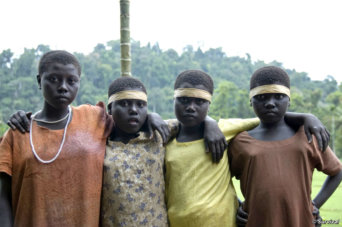- About
- Topics
- Picks
- Audio
- Story
- In-Depth
- Opinion
- News
- Donate
- Signup for our newsletterOur Editors' Best Picks.Send
Read, Debate: Engage.
The Andaman Islands, the archipelago in the Bay of Bengal, may be brought into the “mainstream”, enabling the inhabitants to enjoy the fruits of development.
D.M. Shukla, the islands’ tribal welfare secretary, said that the opposing view, the one which said expansion into and development of the islands should be limited and respect the culture and environment of indigenous peoples, was a less popular view.
That’s right, India is turning its attention towards developing the Andaman Islands. For years it’s treated the idea of development with casual disregard, but with a growing sense of the islands’ strategic and commercial importance, Prime Minister Narender Modi has affirmed his commitment to do much more than talk. It may also be an indication of India’s wider ambitions to expand political influence in the region – not only by commercial means, but by having a stronger military presence on the islands. Myanmar is to the east, along with Thailand, Cambodia and Vietnam, and some have already speculated that such a move could be done to enhance relationships with these nations while circumventing the need to include China.
Which means tribes, wildlife and forests are in trouble. While A. K. Singh added that the people and land would have measures of protection, there is already a worrying amount of dismissal involved in the discussion. Firstly, there is an obvious parallel between bringing tribes into the mainstream of world discourse, and colonial descriptions of bringing enlightenment to the benighted natives – an irony that would be laughable were it not tragic. Secondly, quoting again from the New York Times, Vivek Rae, former chief secretary of the Andaman and Nicobar islands, said it was unrealistic to reserve 1,000 square km of forest for 400-odd Jarawas (a tribe).
It is well-known and understood that when land is designated for development, either for resources or for the land itself, the population living off that land are dismissed – while no accurate population records exist, the idea that those people are no longer entitled to that land has entered the discussion.
Human rights groups and environmentalists have argued against any moves to develop the land, protesting that the environment is not only beautiful but unique, and the people should be left undisturbed.
India’s case represents one in the new world of political expansions. Developing countries expanding into areas while disregarding the rights of indigenous peoples will be the story again and again, across the world. That’s why it’s important to have this discussion now – to temper commercial and political interests with human rights discourse. Maybe that could become a new kind of mainstream.
Image: SurvialInternational.org Jarawa Tribe on Andaman Island
